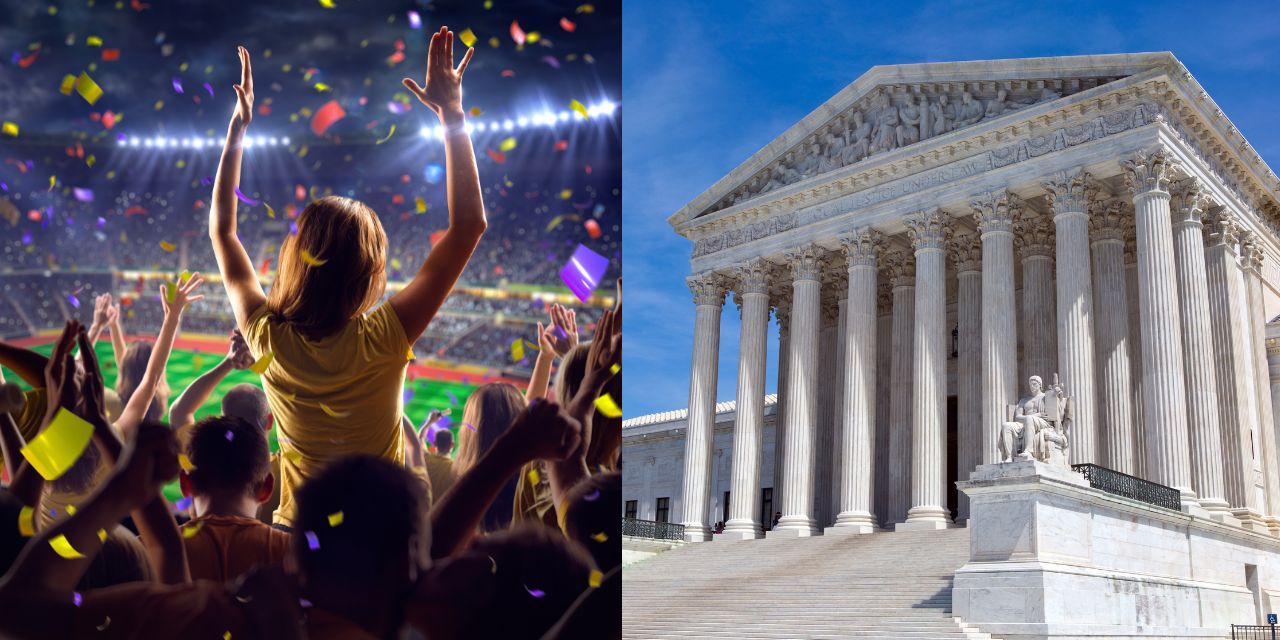Every institution has its seasons and rhythms.
Sport fans correlate January with the NFL playoffs leading up to the Super Bowl, then there’s the NCAA’s March Madness. Come April we have azaleas and the Masters, and every June you can count on the NBA and Stanley Cup Finals. When the air turns cool and the shadows lengthen in October, I look forward to the Major League Baseball playoffs and the World Series.
The Supreme Court?
The nine justices capture headlines every first Monday in October when they kick off their new term, and they’re in the news with oral arguments throughout the year – but late June is their time to shine and garner an oversized chunk of media attention.
And that’s a problem for America – and for us.
In the early days of the United States, members of the Supreme Court only convened in February and August – and only for a few weeks at a time. The Judiciary Act of 1789 required the justices to preside over circuit courts around the country, so they spent considerable time traveling and meeting obligations, as well as addressing various concerns outside of New York City, where they were first based.
However, historians suggest the High Court made very few consequential decisions during its first decade. In fact, there were three chief justices between 1789 and 1801 – John Jay, John Rutledge and Oliver Ellsworth.
Chief Justice John Marshall’s 34-year tenure upended not just the churn of leadership but also transformed the judiciary itself. You’ll remember from your history classes that it was “Marbury v. Madison” in 1803 that gave the Supreme Court the authority to “check” the other two branches of government.
Power changes everything – and the United States government would never again be the same.
Yet, judicial review isn’t the problem – it’s what the justices are asked to review that has unleashed a moral and cultural freefall.
For the first hundred-plus years of our country, no legislator proposed legalizing the killing of innocent children, or redefining the definition of marriage, or prohibiting prayer in public school or passing laws that force people of faith to violate their religious convictions – or else lose their job or go to jail.
That’s not to say the Supreme Court wasn’t asked to weigh in on weighty moral or ethical decisions before the cultural revolution these last fifty-plus years. They got it horribly wrong in Dred Scott v. Sanford when a majority of justices held that blacks “had no rights which the white man was bound to respect; and that the negro might justly and lawfully be reduced to slavery for his benefit.”
It was 1898 in Plessy v. Ferguson, when only one of the eight justices found “separate but equal” to be wrong – a terrible decision that wasn’t overturned until Brown v. Board of Education in 1954, a landmark case that desegrated public schools.
But in recent years, each June’s end seems to bring with it a litany of high-profile cases with enormous consequences. Some suggest that’s because the world is growing more complex, and as times change, the High Court must evaluate and reevaluate the nation’s laws.
In reality, it’s because legislators have either lost their way or judges and courts are overstepping their authority to legislate from the bench.
The whole spectacle has become something of a sport. Not convinced? Tomorrow morning, just before 10 A.M. EDT, visit ScotusBlog, a website “devoted to covering the U.S. Supreme Court comprehensively, without bias and according to the highest journalistic and legal ethical standards,” and you’ll see something akin to a Las Vegas Sportsbook as they await and then analyze decisions.
This is more than legal nerds breaking down cases. Instead, it reflects a Supreme Court that has a disproportionate influence on people’s everyday lives. The High Court will be ruling on cases and on issues that once upon a time were near no-brainers.
Lorie Smith (303 Creative LLC v. Elenis) shouldn’t have to be wondering whether or not she’s going to be forced to design a website for a same-sex wedding – or lose her business. Gerald Groff (Groff v. Postmaster General) shouldn’t have to choose between working on the Sabbath or not working at all. Taxpayers shouldn’t have to pay someone else’s college loan – and students shouldn’t be discriminated against because of their race.
As Christians, we pray for justice and advocate for moral outcomes of cases – but make no mistake: if lawmakers and judges followed God’s laws there would be far fewer decisions pending before the United States Supreme Court.
Photos from Shutterstock.






